For this Pride addition of the Geeks OUT creator spotlight, I had the pleasure of speaking with the extremely talented Luciano Vecchio, a queer comic book artist from Argentina. Luciano has most recently worked on the New Warriors re-launch for Marvel. Prior to that, he did a run on Marvel’s Iron Heart with writer Eve L Ewing and fellow artist G. Geoffo.
Luciano began his American comic book career working for DC for the online initiative “Zuda,” as well as digital first TV-based and custom comics. He soon jumped over to Marvel doing the same type of content. He then began work on his creator owned queer-lead superhero team “Sereno” and “Unseen Tribe.”
It wasn’t long until he caught the eye of editor Alanna Smith, then working on the short lived yet critically acclaimed “Iron Heart” series starring young African-American tech genius, Riri Williams.
Chris Allo: When did your interest in comics begin? What was your first comic book? What was the thing that got you into comics?
Luciano Vecchio: When I was very little in the 80s in Argentina, the Superfriends cartoon was on TV, my older brother used to collect the Spanish edition of DC Comics, and there was a lot of trading cards, toys and merch illustrated with the DC Style Guide by Jose Luis Garcia Lopez. I was immersed in that and it was a big part of my imagination.
I have a vague memory of the first comic book my parents bought for me specifically, one of Batman and Robin, a storyline with Nocturna and the vampires (Looking it up now, it was the Mexican edition of Batman 349 by Gerry Conway and Gene Colan.) I must have been 5 or 6 years old, and I remember having that feeling of “I will do this when I grow up”.
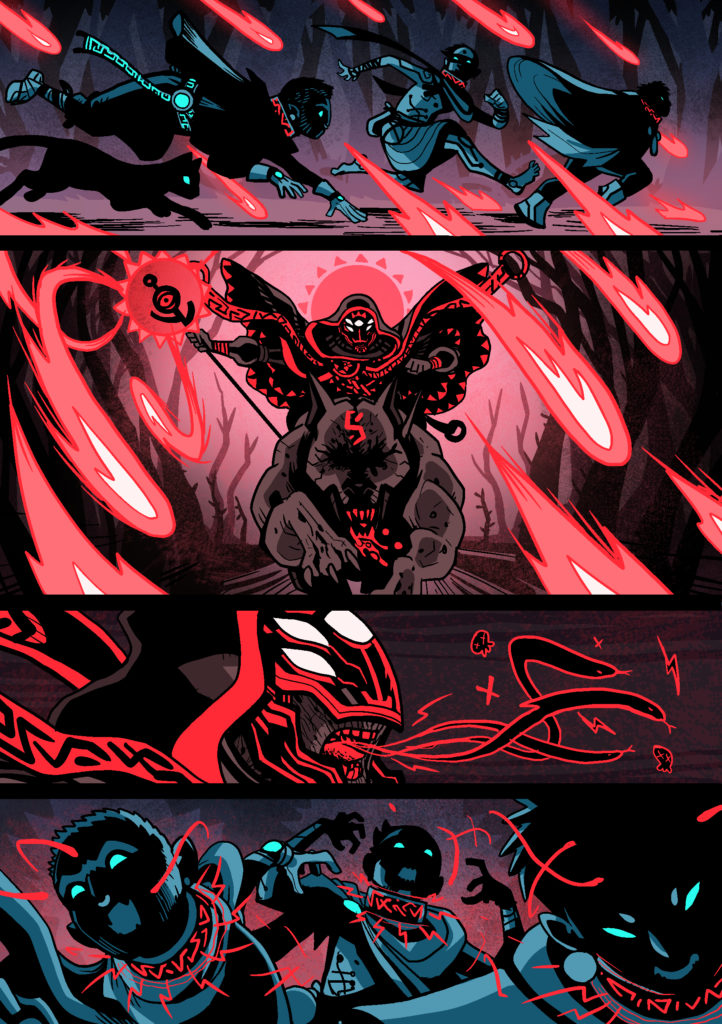
Chris: Who are the artists–any kind of artist, doesn’t have to be comic artists–whose work inspires you?
Luciano: I started with the American school of artists. Like George Perez, Jose Luis Garcia-Lopez were my first inspirations. Then I started mixing it with other influences, like Yoshiyuki Sadamoto from the Evangelion manga, and Bruce Timm’s tv shows. I liked very diverse things I was consuming at the time and tried to mix it all when I drew. Grant Morrison’s writing shaped a lot of my thinking at creating. Gail Simone’s work reeducated my purpose. More recently Rebecca Sugar’s work made me reevaluate my aspirations on what we can achieve through epic fiction and how.
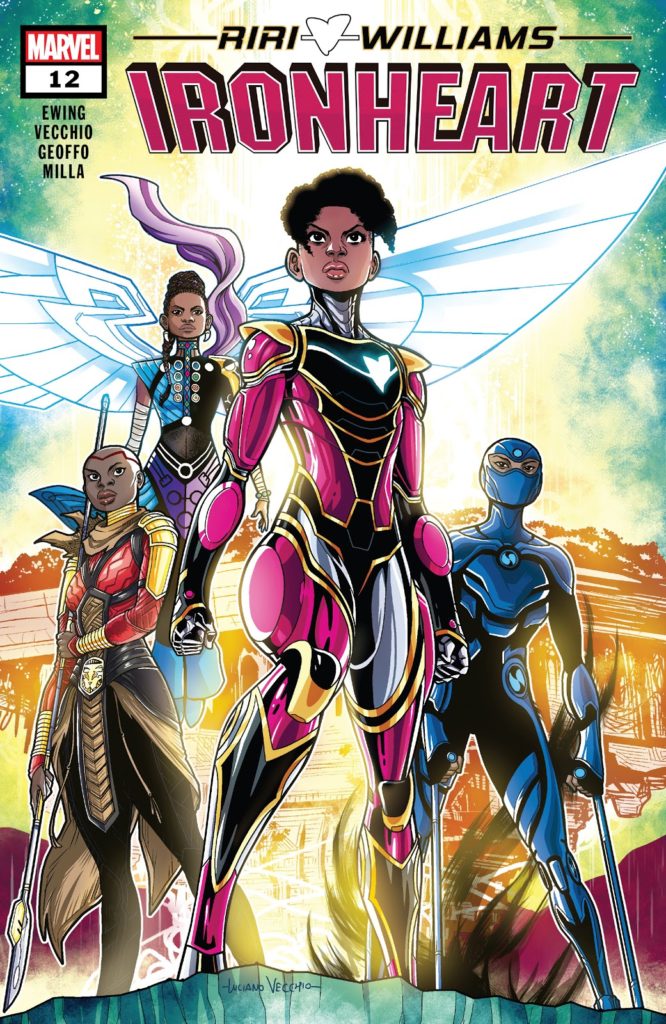
Chris: When it comes to comics, you’ve primarily done work for hire. You’ve done DC and Marvel in America, plus other places. You’ve also done creator-owned as well, right?
Luciano: Yes.
Chris: What are the positives for working for other companies, as opposed to working for yourself? What do you like about working for those different (companies)?
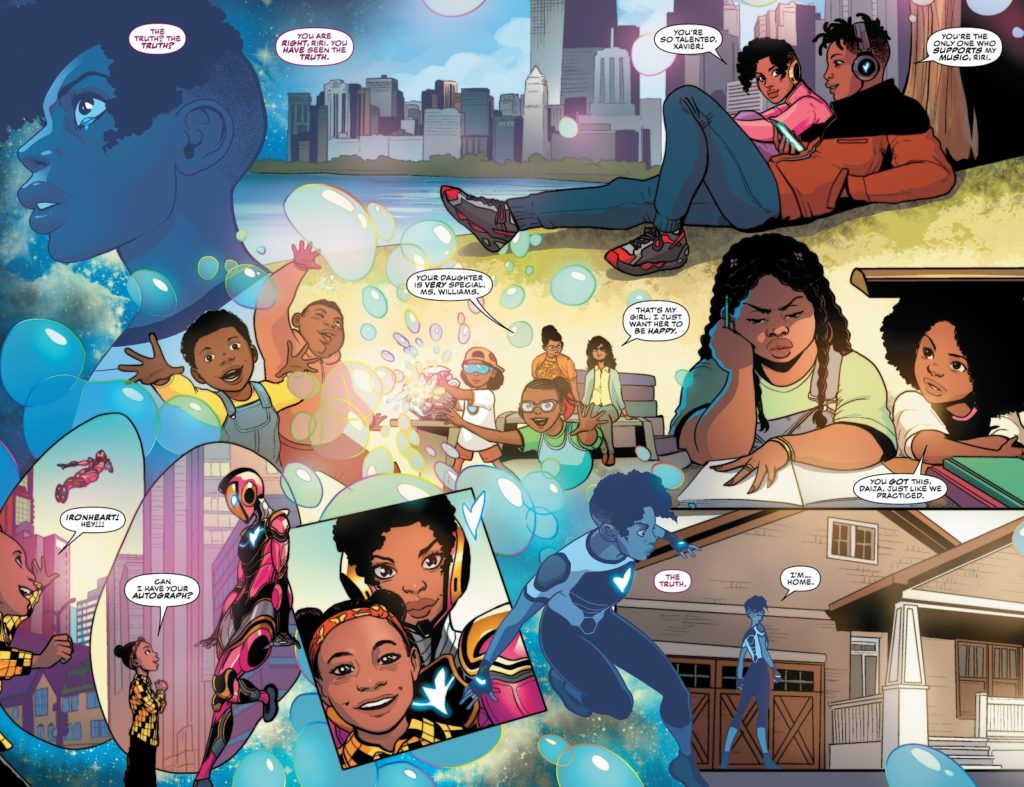
Luciano: What I like about working with mainstream properties like the characters of Marvel and DC, is that I think of it as a modern mythology and world-affecting metafiction. A collaborative, generation-spanning collective work. These characters and their stories and universes are bigger than any of us, hyper-charged with a myth-power that can amplify a story or message in a way that is unique to this medium and industry. That is what I value the most of being able to tap into these story-streams.
When I work for myself, I write my own scripts and I value working from the guts with full liberty, and though my reach is far more limited without a big publisher behind, the connection with readers through my work is raw and personal, a much more intimate experience.
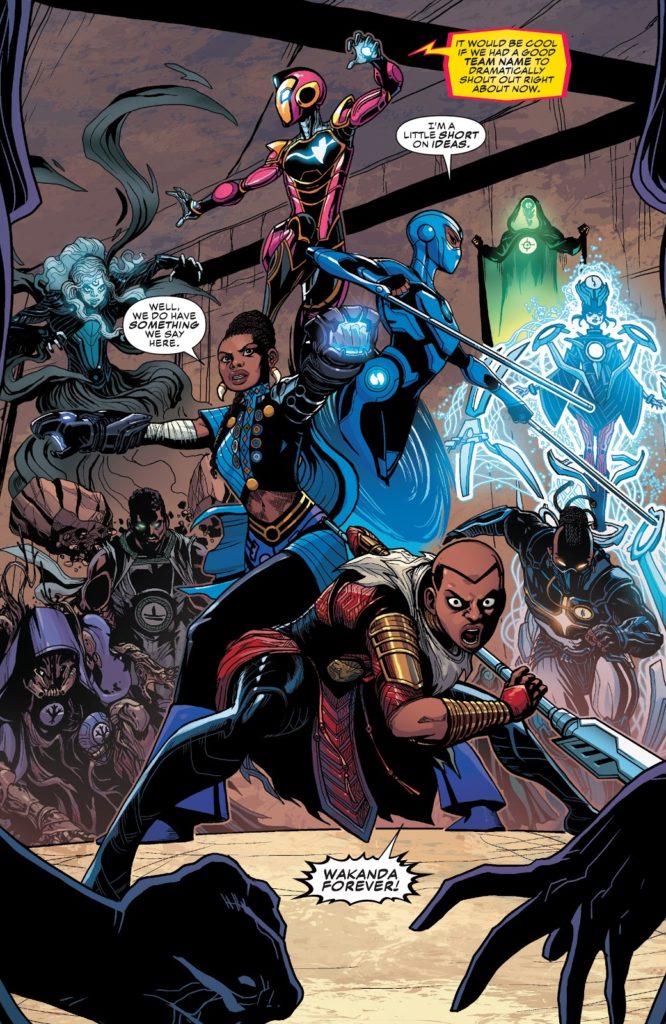
Chris: Do you feel with your current comics, like, say, Ironheart, that (has) been collaborative? You are part of the creative process?
Luciano: In different ways depending on the project, but my latest big projects for Marvel are team efforts between writing, art and editorial.
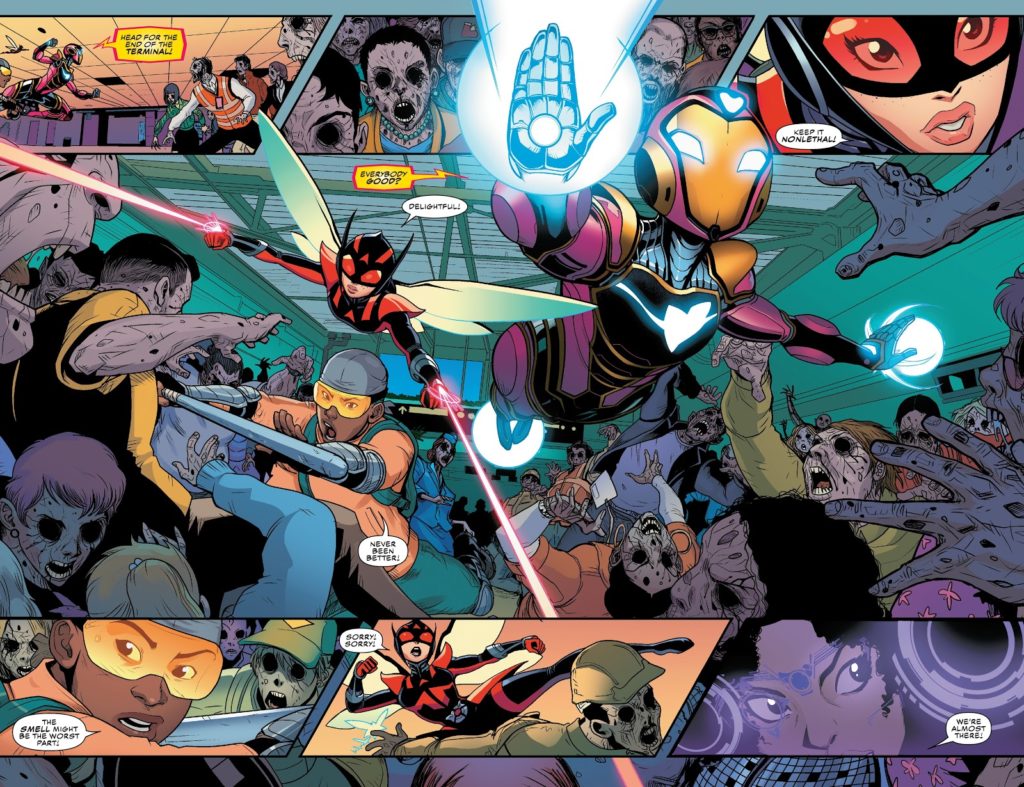
With Ironheart it just flowed because Eve Ewing’s script touched most of my emotional nerves and narrative interests, and we connected and were able to chat about the book and what Riri’s story means to us in ways that were much more personally invested than just drawing a script. In New Warriors, which I’m currently working on with writer Daniel Kibblesmith, I got the chance to be involved from very early stages, and though my input is more visual I was able to insist on including Silhouette in the main roster, who is a favorite of mine and we had recently reintroduced in Ironheart so it gives a sense of continuity.
And in shared continuity there is also this sense of collaboration with past generations of authors who worked on the characters, dipping into previous volumes of the series to make sure I’m invoking the same spirit through my voice, I think it’s a very important part of the job.
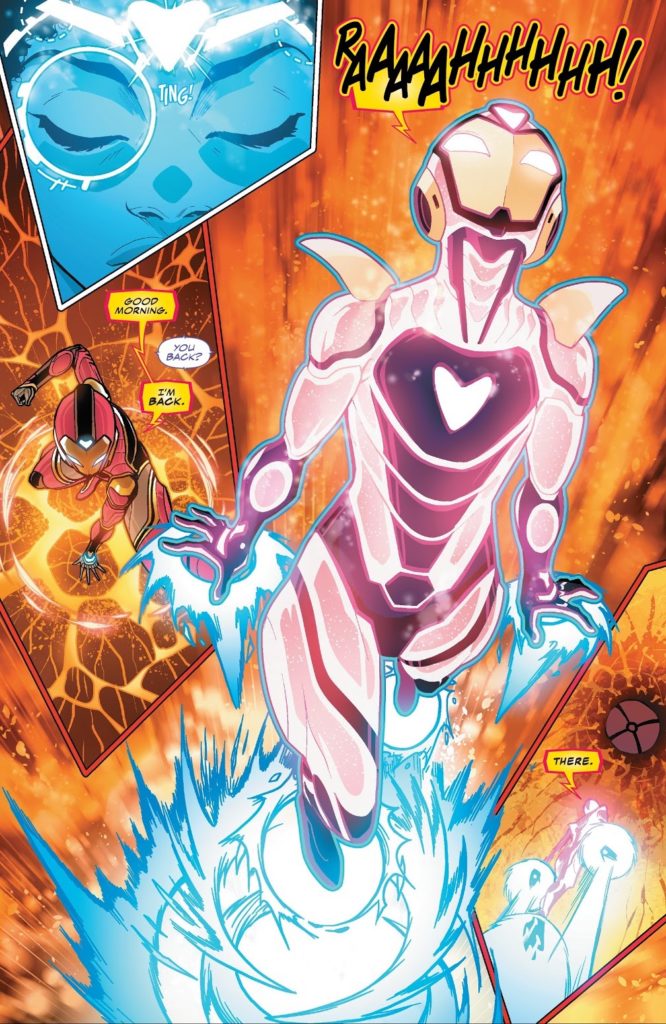
Also, I like doing it all myself sometimes, and I’m so honored that I got the chance to write, draw and color my own mini story from my queer and South American POV for the Marvel Voices special.
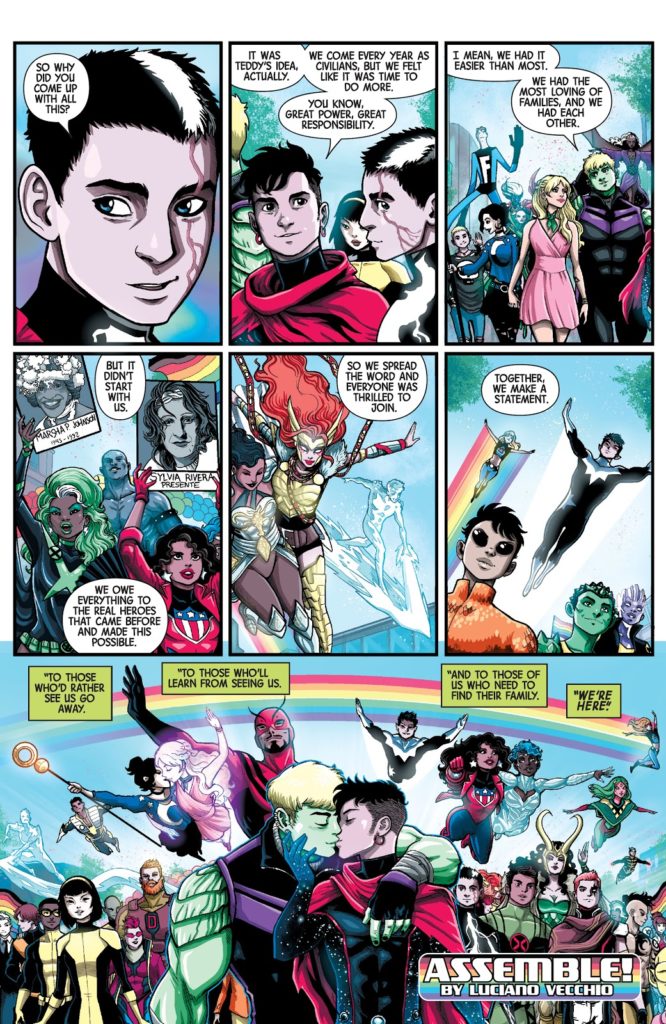
I started my creator owned comic Sereno as a weekly webcomic while I was working on the Ultimate Spider-Man Infinite Comics series (a digital comic based on the TV show). I was adding more work to a very busy schedule so it had to be meaningful for me. Sereno is an exploration of the superhero genre through a poetic, personal, even spiritual perspective. A sort of essay on what we can do and achieve through epic narratives. And it has the queer lead superhero that I needed to read when I was young and didn’t exist.
Chris: And how long have you been working on that?
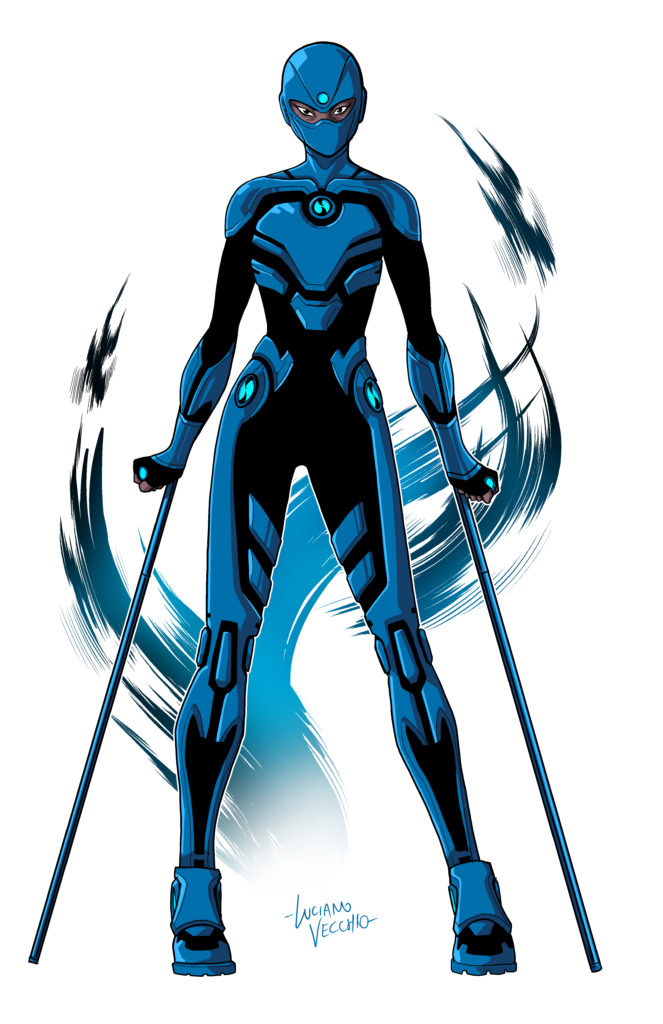
Luciano: I started in 2014 and put it on pause in 2018 when I prioritize my monthly series for Marvel. I did other personal work in the middle and after, but shorter stuff.
Chris: Have you collected it? Have you printed it, or are you going to?
Luciano: I have a first volume collected in Spanish. Now in lockdown times, I took the chance to correct the translation for English readers, and it will soon be available through ComiXology.
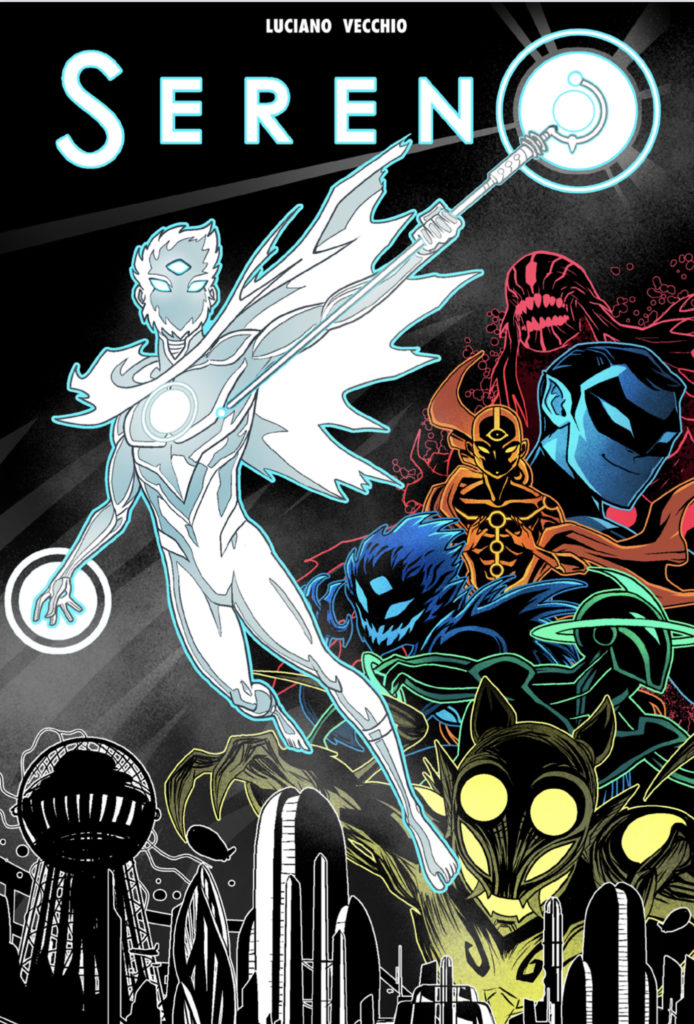
Chris: In terms of projects like work-for-hire, what kind of projects, or content, that you really like drawing? And what are some of the projects you’ve worked on that really satisfied you as an artist?
Luciano: Superheroes are my main interests, and more specifically underrepresented demographics taking the lead in a medium that is catching up after leaving us behind for decades.
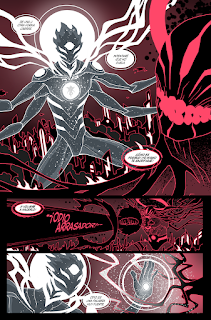
Chris: I assume you’ve worked with several writers. Have there been any writers that really stand out, that you feel like you really gelled with to create a connection, like you guys are feeding off of each other?
Luciano: I would say Eve (Ewing, writer of Marvel’s Ironheart). I feel so lucky I got assigned her first comic work, because her voice and writing, coming from a background in poetry, sociology and education was so fresh and rich I feel it renewed the way I approached making comics. It was a process to get to know each other through the work, because we never met in person so far.
Chris: (laughs) Yeah, that’s how it usually works in comics. So one of your most recent projects was Ironheart, which just wrapped. How did that happen for you? How did it come about, and then what was challenging about it? What did you love about it?
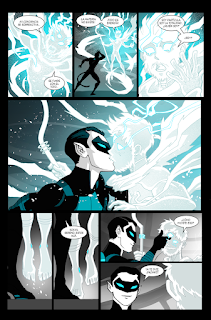
Chris: Well, it was my first shot at the mainstream Marvel Universe, because I was mostly assigned to the digital, animation-based licenses before that, which I had had enough of. I was ready for something more significant. Through my creator-owned work I realized I had my own voice and style, I had my own interests besides just drawing, I wanted to level-up. So the challenging part was making the jump, deciding what I didn’t want to do anymore, go back to producing samples and talk to editors about I what I do want to do and feel I can provide. Then I was given this chance and everything clicked and it’s been quite a ride so far.
Chris: So how does it feel? I’ve been in comics for a long time, and for me, this journey will always have samples. Now it feels, with this younger generation of artists, they don’t want to do samples for free. They feel they should be paid. How do you feel about that?
Luciano: It feels like it’s part of the business.
Chris: It’s just kind of accepted?
Luciano: As long as it’s not unfair. At many points of my career I saw portfolio work as an investment. I won’t work for free, but I will invest in myself if it’s going to pay off reasonably.
Chris: It’s not unlike when you’re an actor and you’re doing auditions, right? You’re not getting paid for them. You’re trying out for the job.
Luciano: Yeah, it’s not the same as a publisher asking you to work for free, or being paid in “exposure”.
Chris: Alright, cool. So you’ve done some work in Argentina. How does that compare to your American comics work? Is it very different?
Luciano: Argentina has a very rich, creative and political comic scene, in a smaller market with small and self publishers, it is a scene fueled by passion and it shows. I consider my creator owned work very successful in this context, but I do it for love and not for profit. My American work is what makes my income besides being enrichening in the ways we talked about.
Chris: Are there any artists lately that inspire you? Contemporaries that are working now?
Luciano: More than specific authors my attention is in this paradigm shift we’re attending and being part of, of LGBT+, female and POC voices progressively taking space in the making of culture. In and out of comics, in independent and mainstream, in fiction and other expressions.
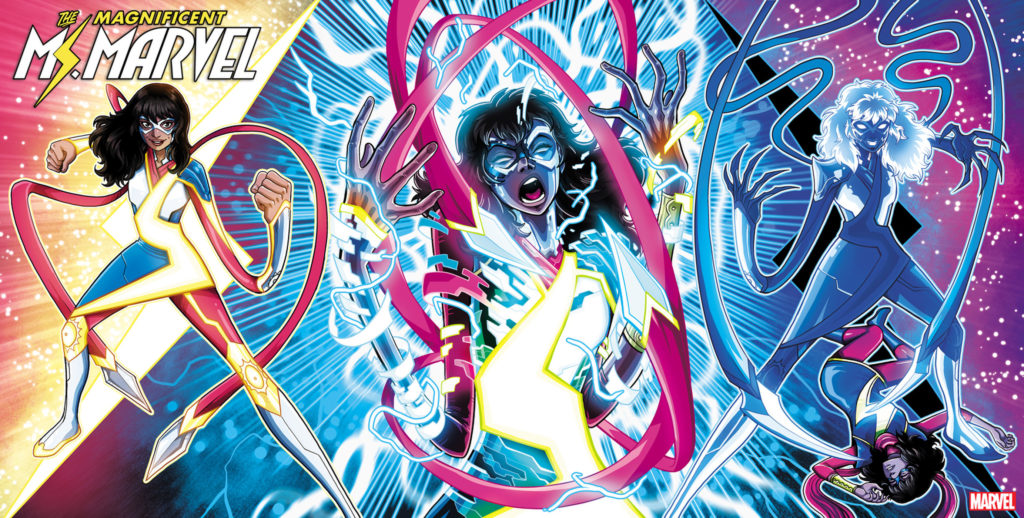
Chris: How has being LGBTQ informed your work? What is it about being gay or bi or whatever that you put into your work?
Luciano: I think as public first we have an unique reading of how fiction and culture shapes the world around us and even how we look at ourselves as a result of that, so then as creators we bring that awareness if we can, which is not as easy as I would hope, it’s more of a constant work of learning through trial and error and observation, or projecting oneself into characters and story from that perspective. My subjectivity as queer and South American -Marika y Sudaca- will affect and shape the work I’m producing, and I think when it works out the best is when I draw (or write) for myself, for the kid I was, and that can resonate stronger and more honestly.
Chris: Obviously, when you’re working for a big company, you only have so much control of what you could do. That’s why you could have your own creator owned, so you could do things like that. So outside of the Big 2, what do you think we could do?
Luciano: I think visibility is super important for creators and any person with a following (if your safety and survival needs allow it, of course). When I was a teenager and Phil Jimenez came out it was inspiring and empowering, and now as a professional knowing about so many LGBT+ colleagues in the industry provides a sense of community that can extend to readers too if we’re visible and vocal. And with our work, we can pick our fights, propose contents that we need and won’t get done if we don’t start ourselves. Hold the door open for the next generation of queer creators so that they will have better opportunities.
Chris: Here’s a lighter question. Who is your favorite existing queer character and why?
Luciano: Wiccan and Hulkling are like the most likable of the whole Marvel universe, they’re cute and wholesome in a way that didn’t abound when they were first introduced, I think they incarnate the self-accepting and loving queer archetype and that’s why they have a very invested following across the globe even beyond comic readers.
Chris: What are the projects you are most proud of right now?
Luciano: Ironheart and my creator-owned comic Sereno. And I’m especially proud of my story in Marvel Voices anthology which I got to write myself, which is a rarity being a non-native English speaker, in which I had all the LGBT+ characters of the Marvel Universe gathering BECAUSE of their queer identity, for Pride. It is something I always wanted to see happen, I took the chance and pitched the idea even though I was invited as just an artist into this special, and it worked out. It’s just one page, but I did it all, even coloring and it is a career highlight for me.
Chris: What lesson or advice would you give to aspiring artists today? What do you wish you knew then that you know now when it comes to being a working artist in today’s industry?
Luciano: It’s weird, because the world keeps changing so fast. My personal experience really doesn’t apply to newer artists.
Chris: Well the mechanics of it are still kind of the same, yeah? I always tell my artists “whatever you do, make sure you keep a schedule. Make sure you think on those terms.” I think having some of those basics will always stay the same, but knowing what you know now, what would you tell somebody? “Make sure you focus on this, this is really important…”
Luciano: I think I took a while to develop the more human, social aspect of the business. That’s what I struggled with the most when I was younger. I find it is fundamental. In whichever way you can make it happen.
Chris: This last question is, is there anything new on the horizon? What’s your next project that you could talk about? Or not talk about. Do you have something coming up?
Luciano: The New Warriors miniseries which has been rescheduled as a result of the distribution stop, so I don’t know when it will come out now. Same with my variant cover for Emperor Hulkling, which is only a cover but it was so cool to get to draw my boy Teddy like this. And I have a short story as writer/artist in an Argentinian anthology coming up, in a much more personal and raw style.
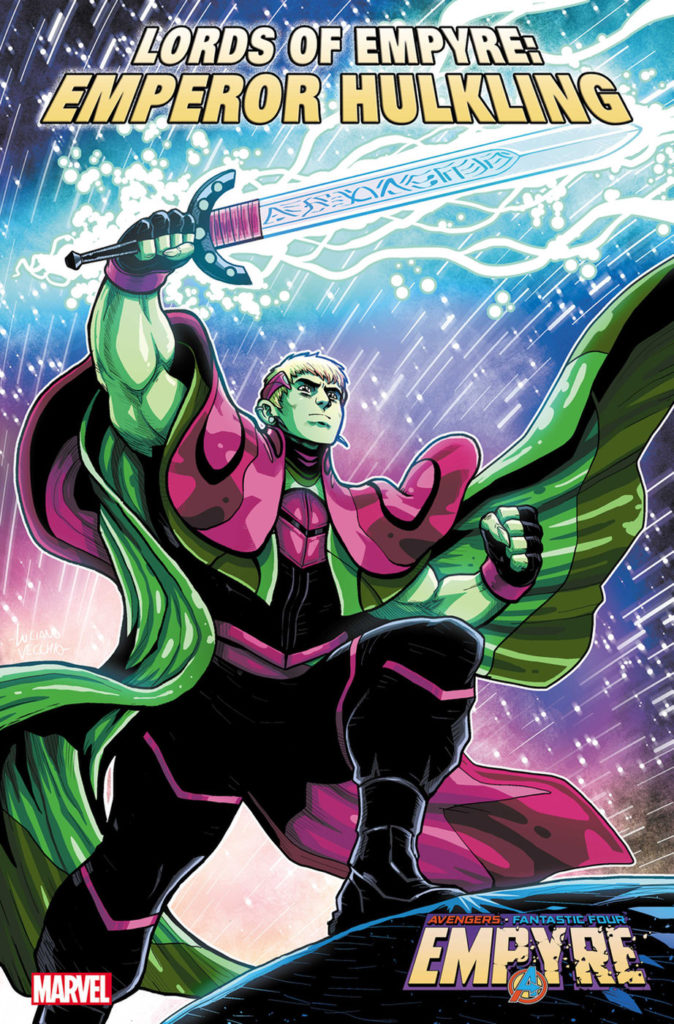
Chris: Well if you could pick your own project, what would you want to work on? Like a mainstream thing.
Luciano: If I can just dream, a Young Avengers or just Wiccan & Hulkling book. I’m starting to fantasize about writing or co-writing something with them.
Chris: So if you could put together your own superhero team from any queer characters who are out there, who would be on your team?
Luciano: Also, I think Wiccan and Hulkling and Nico Minoru and Karolina Dean have so much in common as couples that would make a great team dynamic. But more of a team I would love a book about community, where any queer character can appear and connect and know each other because of their shared identity, as we do in real life.
Chris: I think every character has the potential to be great, it’s just a matter of… to me, comic books are “character, writer, artist.” If you find the right team, they could make anybody an amazing character. I don’t think any character is shit like that. Any character can be great. Oh, one more question. How was your Flame Con experience? How important do you think it is to have our own conventions?
Luciano: It is super significant for me. My first time I attended just as a visitor in 2018, which I hadn’t done in years at any show, and it was so special. For the first time I felt fully safe and with my own community in a comics related event, I went to workshops and panels, met people, learned from LGBT+ peers in the industry. I was at the professional crossroad before making the jump to Ironheart and those two days were defining in my intentions. I said to myself this is where I want to be, and I want to return as a guest. And bam! Next year, 2019 I was part of the guest list, tabling and participating on the Designing X-Women panel, and it was my favorite con experience ever. I looked forward to returning in 2020, I guess given the circumstances it will have to be 2021?
Chris: How does it compare with artist alley in New York Comic Con? (Laughs)
Luciano: Well it’s shorter! (Laughs)
Chris: Yeah, it’s exhausting.
Luciano: Well, it’s a pleasure. I don’t know. Being within our community, it’s more chill, it’s more enjoyable in general. New York Comic Con is also super enjoyable, but it’s so much more intense, and you’re surrounded by people you admire, and… I don’t know. There’s opportunity in every direction. It’s exhausting.
Chris: Was there anybody you met at each of the conventions that you never expected to meet? That you were a fanboy for?
Luciano: Lots of people over the years, I used to be super awkward or just freeze when I met my childhood idols like George Perez, JL Garcia Lopez or Grant Morrison, but contexts like Flame Con or sharing the “New York Times’ LGBT in Comics” panel at NYCC that I did twice allowed me to make the transition from fan to peer with creators I admire and who have positively influenced me with their work but also with their insight, support and encouragement, like Phil Jimenez, Amy Reeder, Steve Orlando, Vita Ayala, and more.

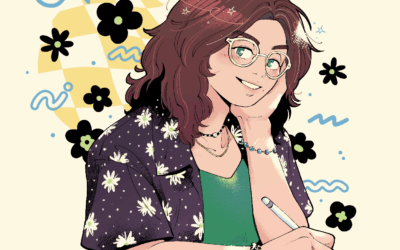
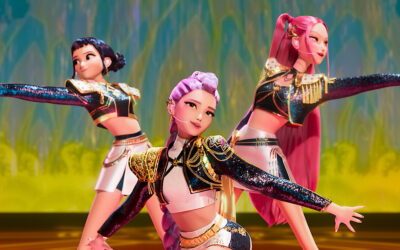

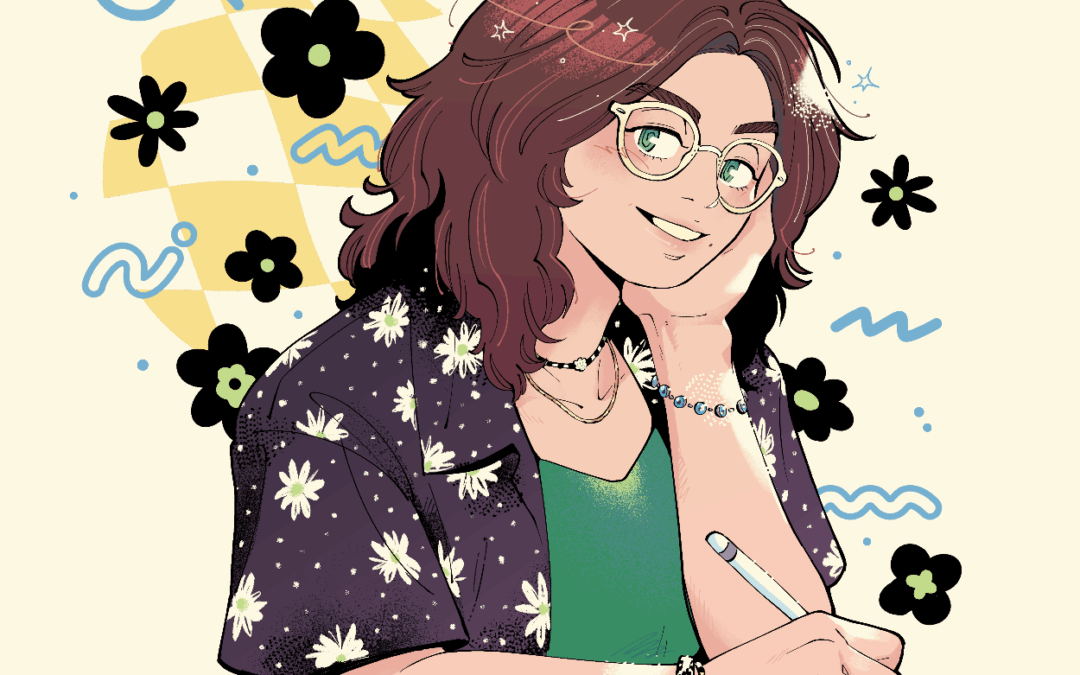
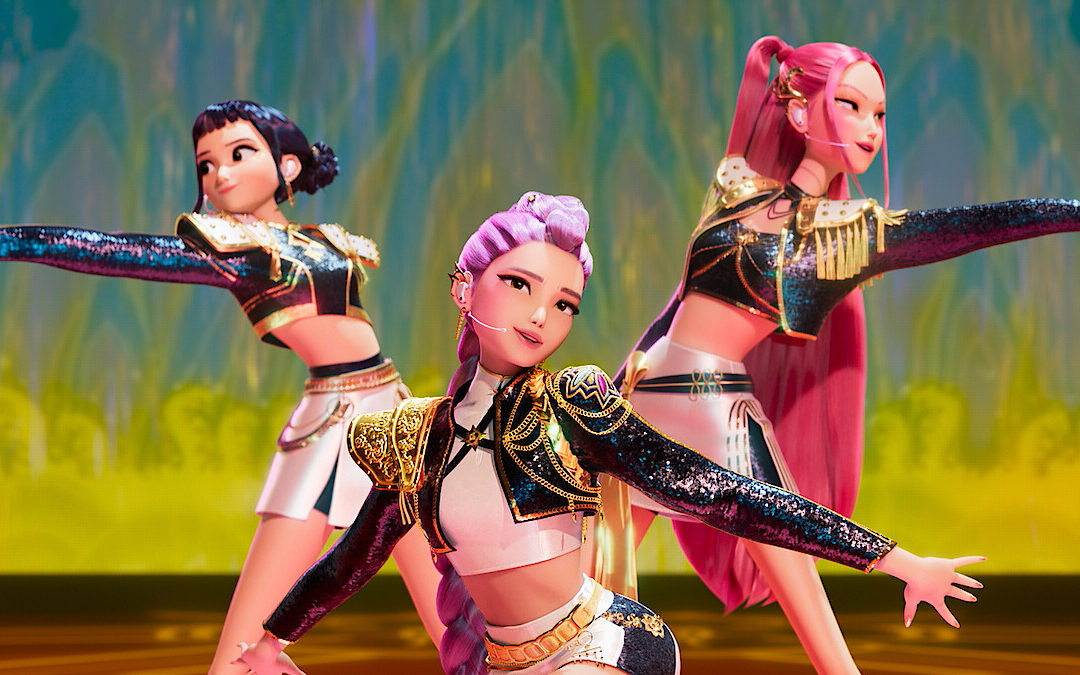
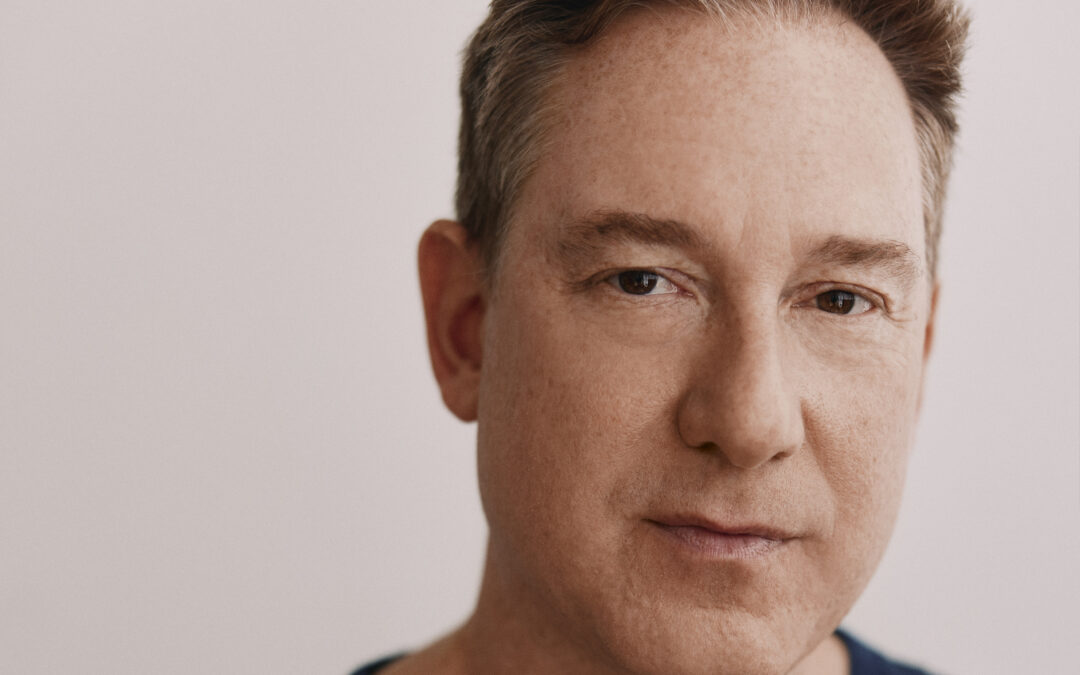
0 Comments